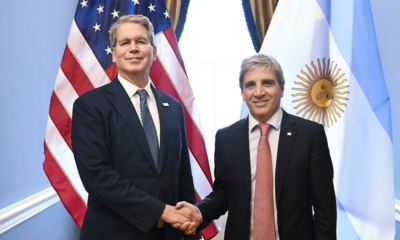INTERNACIONAL
‘Get a job’: Medicaid work requirements included in Trump’s megabill sparks partisan debate on Capitol Hill
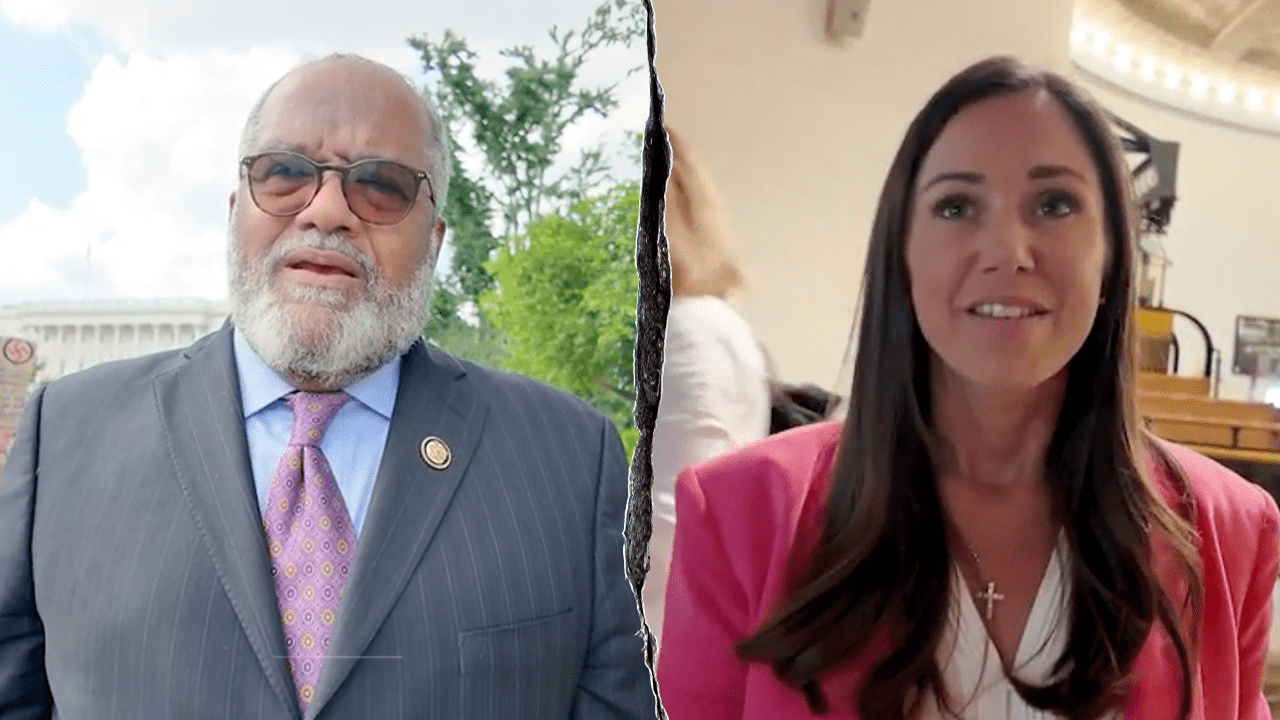
NEWYou can now listen to Fox News articles!
Democrats have railed against potential Medicaid cuts since President Donald Trump won the 2024 presidential election. Now that his «big, beautiful bill» has passed through Congress, they are making Medicaid a top talking point ahead of competitive midterm elections expected in 2026.
Republicans, meanwhile, are doubling down on Medicaid reform included in Trump’s megabill, which also includes sweeping legislation on taxes, immigration and energy.
«My policy is if you’re an able-bodied worker, get a damn job,» Rep. Nancy Mace, R-S.C., told Fox News Digital. «If you want government benefits, go to work and get a job.»
A provision in the megabill requires able-bodied, childless adults between the ages of 18 and 64 to work at least 80 hours a month to be eligible to receive Medicaid benefits. Individuals can also meet the requirement by participating in community service, going to school or engaging in a work program.
REPUBLICANS PRAISE ‘BIG, BEAUTIFUL BILL’S’ WORK REQUIREMENT FOR MEDICAID: ‘WE’VE GOT TO GET BACK TO WORK’
Rep. Troy Carter, D-La., and Sen. Katie Britt, R-Ala., spoke with Fox News Digital about Medicaid work requirements. (Nicholas Ballasy – Fox News Digital)
Fox News Digital asked lawmakers on Capitol Hill if taxpayers should have to pay for Medicaid bills for able-bodied workers who are under 65 and unemployed.
‘RIGHT DOWN THE LINE’: MEDICAID REFORM IN ‘BIG, BEAUTIFUL BILL’ DIVIDES LAWMAKERS BY PARTY
Sen. Angus King, an independent from Maine, said in both Arkansas and Georgia, where work requirements have already been imposed, it ended up costing taxpayers more money to administer the work requirements.
«We’re talking about a very small population, and in the two cases where they tried it, it ended up, number one, disqualifying people who met all the requirements but gave up on the paperwork. These aren’t people that are used to filling out a lot of paperwork every month. And it also cost the state a lot to administer,» King said.
The New England Journal of Medicine found that Arkansas’ Medicaid work requirement from 2018 to 2019 «found no evidence of increased employment … and a significant loss of Medicaid coverage among low-income adults.»
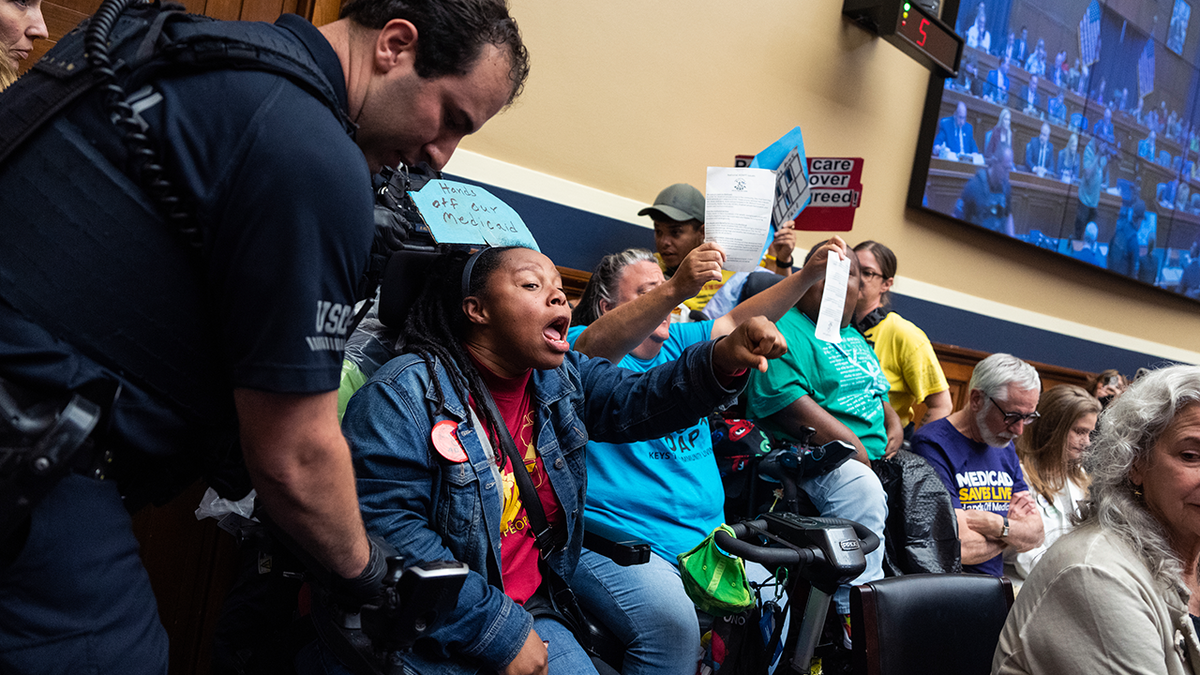
Demonstrators calling for the preservation of Medicaid funding are removed from the House Energy and Commerce markup of the FY2025 budget resolution in the Rayburn building on Tuesday, May 13, 2025. (Tom Williams/CQ-Roll Call, Inc via Getty Images)
Similarly, the Georgia Budget & Policy Institute (GBPI) reported that 80% of the $58 million spent in the first year of Georgia’s Pathways to Coverage program went toward administrative costs.
But Sen. Katie Britt, R-Ala., emphasized that Republicans «want these programs to be around for the people who need them.» She said Medicaid reform is about «strengthening and preserving these programs at the rate that they’re growing.»
«These programs were intended to be safety nets, not hammocks that people stay in, and the success of these programs should be measured by how many people we get off of them,» Britt said.
Sen. Bill Cassidy, R-La., agreed, telling Fox News Digital, «What you don’t want is for somebody to become dependent. I’d tell people: safety nets should bounce you to your feet. They shouldn’t be like flypaper in which you stick and can never get off.»
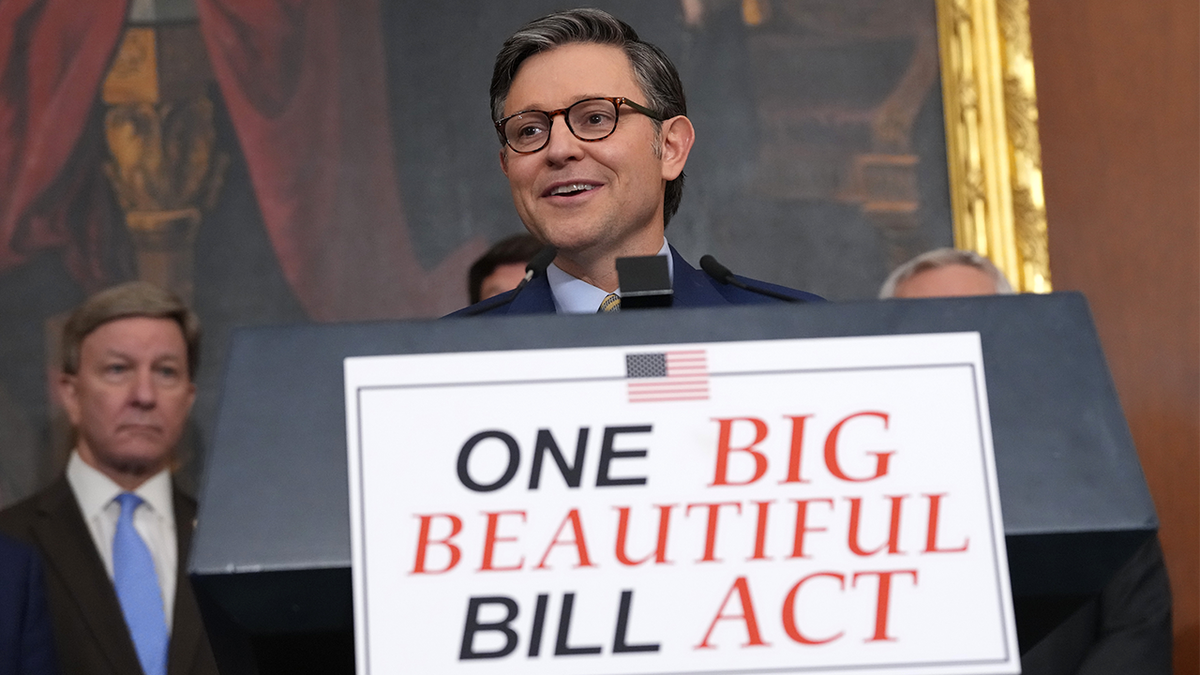
Speaker of the House Mike Johnson speaks to the media after the House narrowly passed a bill forwarding President Donald Trump’s agenda at the U.S. Capitol on May 22, 2025, in Washington, D.C. (Kevin Dietsch/Getty Images)
«We’re not saying, ‘Hey, we’re not throwing you out.’ All right, but you gotta go get a job. You either get a job, or actually you can even volunteer, all right? And that will satisfy the requirements for work,» Rep. Carlos Gimenez, R-Fla., explained.
But Democrats who spoke to Fox News Digital continued to push back against the work requirements included in the «big, beautiful bill.»
«I think people [who] are able to work, trust me, they’d rather work than to get the piddling dollars that they get from Medicaid. It’s insulting to suggest that a person would rather sit at home rather than work and get this meager amount of money. All of this has just been totally expanded to fit a narrative that allows them to cut into those people who really deserve Medicaid,» Rep. Troy Carter, D-La., said.
CLICK HERE TO GET THE FOX NEWS APP
And Rep. Lateefah Simon, D-Calif., said, «We need to be able to have an infrastructure in this country that supports the elderly and the sick and the widows and the child. This bill, it violates all those basic principles.»
Fox News’ Peter Pinedo contributed to this report.
INTERNACIONAL
Dos aviones militares rusos violaron el espacio aéreo de Lituania y provocaron un operativo de la OTAN

Dos aviones de combate de Rusia penetraron en el espacio aéreo de Lituania, país miembro de la OTAN, este jueves alrededor de las 18:00 hora local (15:00 GMT). Según información confirmada por el ejército lituano, los aparatos, un caza Su-30 y un avión cisterna Il-78, cruzaron desde la región de Kaliningrado y recorrieron unos 700 metros en territorio lituano. La irrupción duró aproximadamente 18 segundos.
Las fuerzas armadas lituanas explicaron que las aeronaves realizaban, probablemente, maniobras de entrenamiento de reabastecimiento cuando traspasaron la frontera estatal cerca de Kybartai, al suroeste del país. Tras la detección del incidente por radar, Vilna activó los protocolos de seguridad e informó a sus aliados de la OTAN, la Unión Europea (UE) y al Consejo del Atlántico Norte.
En respuesta inmediata, dos cazas Eurofighter Typhoon españoles, desplegados en la base aérea de Siauliai como parte de la misión de Policía Aérea del Báltico y la operación ‘Centinela Oriental’, despegaron y patrullaron la zona. Un portavoz de la OTAN afirmó que la intervención de los cazas españoles demuestra “la disposición de la OTAN para responder ante cualquier acontecimiento” y su capacidad para garantizar la integridad aérea de sus miembros.
La invasión temporal del espacio aéreo fue calificada como “una severa violación del Derecho Internacional y la soberanía territorial” por el presidente Gitanas Nauseda. En un video difundido en la red social X, el mandatario subrayó que los hechos confirman “la importancia de fortalecer la preparación de la defensa aérea europea”. Además, anunció que Lituania convocaría a representantes de la embajada rusa en Vilna para protestar formalmente contra lo que describió como un “comportamiento imprudente y peligroso”.
Por su parte, la primera ministra Inga Ruginiene declaró en Facebook que “este incidente demuestra una vez más que Rusia se comporta como un Estado terrorista, despreciando el Derecho internacional y la seguridad de los países vecinos”.
“Lituania es segura. Junto con nuestros aliados, cuidamos y defenderemos cada centímetro de nuestro país”, añadió la premier e insistió en que la “situación está completamente bajo control”. Ruginiene también elogió la rápida y coordinada acción de los cazas españoles implicados.
El Ministerio de Defensa ruso negó la incursión.
“Los vuelos se realizaron en estricto cumplimiento de las normas de uso del espacio aéreo sobre territorio ruso. Las aeronaves no se desviaron de su ruta ni violaron las fronteras de otros estados”, declaró en Telegram.
El incidente elevó las tensiones en la zona, en un contexto regional ya sensible por las continuas provocaciones rusas. Según el ministro polaco de Defensa, Wladyslaw Kosiniak-Kamysz, entrevistado por la cadena TVN24, “esto demuestra que la vigilancia es necesaria en todo momento, que Rusia no se está calmando ni retrocediendo”.
Este no es un hecho aislado en la región. El pasado 19 de septiembre, tres aviones militares rusos violaron el espacio aéreo de Estonia durante 12 minutos. La OTAN envió entonces cazas para escoltar a los aparatos hasta su salida. En ese caso, Rusia negó la incursión y acusó a Tallin de carecer de pruebas y de buscar aumentar la tensión entre Oriente y Occidente. Aún antes, más de 20 drones rusos entraron en el espacio aéreo de Polonia; fue la primera vez desde el inicio de la guerra en Ucrania que la OTAN derribó objetivos rusos en defensa de un país miembro.
El general estadounidense responsable del mando militar de la OTAN expresó durante la semana que la firme respuesta aliada frente a las incursiones en Polonia y Estonia parece haber actuado como elemento disuasorio para Moscú, aunque se prevé que Rusia continúe con pruebas a los límites defensivos.
Organizaciones de seguridad y líderes de la UE reconocieron la importancia de fortalecer la defensa aérea europea. El propio Nauseda participó el jueves en una cumbre del Consejo Europeo en Bruselas, donde los líderes de la Unión respaldaron la estrategia ‘Readiness 2030’, orientada a garantizar la capacidad de Europa para defenderse ante cualquier agresión externa.
No hubo comentarios inmediatos por parte de Moscú tras la denuncia lituana. Las autoridades rusas han negado en ocasiones previas su implicación en violaciones similares, acusando a los países bálticos de exagerar o de falsificar pruebas para alimentar la tensión en la región. La OTAN mantiene desplegados grupos de vigilancia aérea permanente en los estados bálticos, a la espera de nuevos acontecimientos.
(Con información de AP, EP y Reuters)
Politics,Europe
INTERNACIONAL
¿Qué espera Europa de las elecciones en la Argentina?
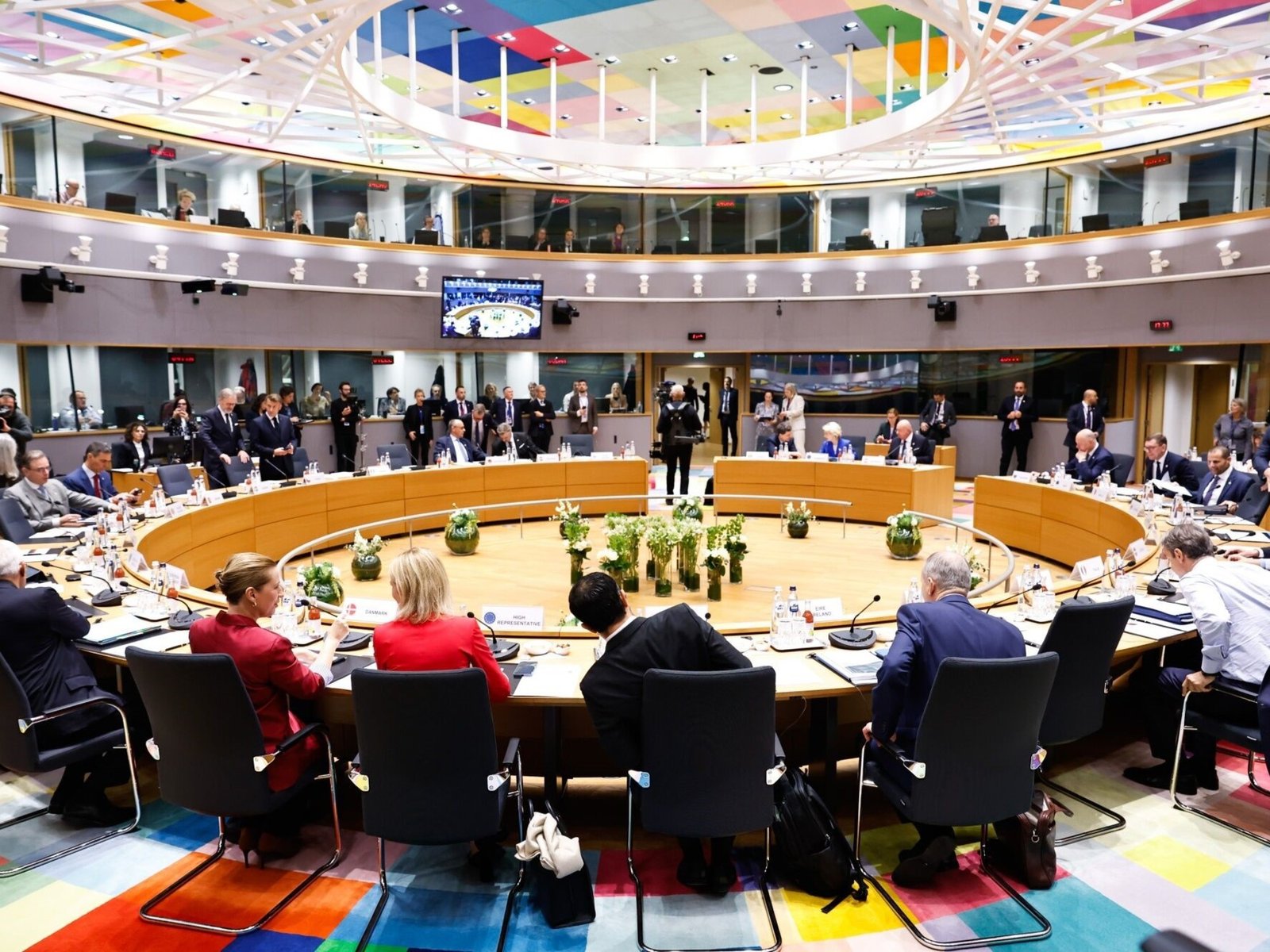
Las elecciones legislativas argentinas quedan lejos de las tapas de los diarios europeos, pero la diplomacia de la Unión Europea sí tiene el radar apuntando hacia Buenos Aires y espera con cautela. Los diplomáticos consultados esta semana en Bruselas aseguran que se fijan principalmente en tres aspectos: la gobernabilidad del país, su rumbo económico y el futuro del acuerdo entre el Mercosur y la Unión Europea.
Europa necesita una Argentina alineada con el resto del Mercosur para reactivar el tratado, ya firmado y que podría estar pronto en la mesa de los ministros de Comercio europeos. Si hubiera una mayoría suficiente para saltar los obstáculos, principalmente el voto contrario francés, iría al Parlamento Europeo, donde las previsiones son de una aprobación ajustada. Pero la Comisión Europea se pensará mucho dar esos pasos si Argentina no sigue la misma vía.
Bruselas mira más asuntos que podrían verse alterados tras las legislativas. Argentina debería ser uno de los principales proveedores de varios insumos listados en las políticas de autonomía estratégica europeas. Desde Europa se ve al país como suministrador importante de minerales como litio y cobre y de productos agroalimentarios, en parte para reducir la dependencia en minerales que Europa tiene de China.
Las afinidades políticas también pesan. Algunos gobiernos del bloque, los liderados por partidos de extrema derecha como el italiano, el húngaro o el eslovaco ven con simpatía al presidente Milei y esperan que tenga un resultado positivo. Las instituciones del bloque, empezando por su brazo ejecutivo la Comisión Europea, no toman partido político, pero preferirían otro tipo de dirigente, más cercano a las grandes familias políticas europeas.
Aun así, Bruselas se acomoda mientras las relaciones mantengan una línea vital mínima y se conserve la estabilidad económica, esencial para las inversiones europeas en el país. Los europeos siguen con atención la negociación con el FMI y la estabilidad fiscal del país, sobre todo después de las declaraciones de funcionarios estadounidenses, incluido el presidente estadounidense Donald Trump, alegando que podrían dejar de ayudar financieramente a Argentina si las tropas de Milei no obtienen un buen resultado.
Las elecciones caen justo cuando por primera vez una cumbre europea va a discutir oficialmente cómo parar a la extrema derecha, aunque en la mesa del Consejo Europeo se sientan varios dirigentes de extrema derecha. Porque la mayoría de los dirigentes ya saben que lo que se juegan no es qué partidos dirigen la Unión Europea, sino la propia existencia del proyecto de construcción política del bloque.
Ese debate, como tal, no se explicita en ningún documento de la cumbre, pero los asuntos que se trataban este jueves en Bruselas son precisamente los que permiten que la extrema derecha vaya ganando puestos por todo el bloque: desde la crisis por el acceso cada vez más caro a la vivienda hasta la inmigración pasando por el gasto creciente en defensa.
Los datos que maneja la Comisión Europea aseguran que desde 2010 la vivienda se ha encarecido de media en Europa hasta un 48%, muy por encima de los salarios.
La extrema derecha también aprovecha la inmigración. Cada año sube la preocupación por un asunto que alimenta a los partidos ultra, pese a que en los últimos dos años las llegadas de migrantes a Europa van en descenso y que en muchos países la emigración es mayor que la inmigración. Esa misma extrema derecha es la que ve con buenos ojos al presidente Milei.
Las legislativas argentinas, desde Bruselas, servirán para definir, sobre todo, la estabilidad de la gobernanza del país, su desempeño económico, el futuro del acuerdo con el Mercosur y las opciones de que el presidente Milei alcance un segundo mandato o se le haga cuesta arriba.
Un diplomático francés, del país que ha cambiado de primer ministro más de una decena de veces en 15 años, contaba esta mañana, en los márgenes de la cumbre, que lo que Europa espera es “previsibilidad y estabilidad política”.
INTERNACIONAL
Doctors on key US health task force accused of prioritizing DEI over evidence-based medicine

NEWYou can now listen to Fox News articles!
An «independent» advisory panel of non-federal experts determining which preventative healthcare services insurers must cover is accused of being staffed with doctors who have shown a propensity to prioritize «woke» left-wing diversity, equity and inclusion ideals in their work, as opposed to evidence-based science.
The U.S. Preventative Services Task Force (USPSTF), an all-volunteer panel of doctors who serve four-year terms appointed by the Secretary of Health, is made up of experts in preventative medicine, which includes services like screening tests, immunizations, behavioral counseling, and medications that can prevent the development or worsening of health conditions. One of the task force’s primary functions is to weigh the efficacy and cost-benefit of such preventative care services, recommendations for which are then used to shape what preventative care services insurance providers must cover.
The task force’s ability to make these healthcare recommendations, coupled with what appears to be a membership largely made up of left-wing, DEI proponents, has raised concerns about how the task force could be impacting healthcare.
The Wall Street Journal reported in July that sources with knowledge of Health Secretary Robert F. Kennedy Jr.’s thinking said he was planning to dismiss all 16 members of the USPSTF for being too «woke.»
NEW MEDICAL POLICY CENTER COMBATS WOKENESS IN MEDICINE, LAUNCHING LANDMARK RANKING OF TOP SCHOOLS
RFK Jr. speaks at the 2025 Rx and Illicit Drug Summit at Gaylord Opryland Resort and Convention Center in Nashville, Tenn., Thursday, April 24, 2025. (© Nicole Hester / The Tennessean / USA TODAY NETWORK)
«HHS has been made aware of the ideological issues with members of the USPSTF raised by letters from Senate Republicans, members of the GOP Doctors Caucus, and a large group of physicians including Associations of American Physicians and Surgeons, America’s Frontline Doctors, and the Pennsylvania Direct Primary Care Association. HHS is troubled by these allegations and is investigating further,» Emily Hilliard, a Health and Human Services Department spokesperson told Fox News Digital when asked about Kennedy’s plans for the future of the current USPSTF.
Meanwhile, others, including the GOP Doctors Caucus and major physician groups including the Association of American Physicians and Surgeons, have also raised alarm bells about potential left-wing bias at the USPSTF. One group that has also raised alarm bells about the USPSTF is the conservative watchdog group known as the American Accountability Foundation (AAF), which just released a new report claiming the USPSTF «has been thoroughly hijacked by left-wing partisans for the purpose of weaponizing science to spread leftist ideology.»
The AAF report points to Dr. Michael Silverstein, the task force’s current chairman, who, in 2023, said that USPSTF is «dedicated to … addressing critical issues of health equity» after he was re-appointed to the task force’s leadership team under the Biden administration. As Vice Chair of the task force in 2023, Silverstein co-authored an annual report to Congress highlighting a new partnership with the Gay and Lesbian Medical Association (GLMA) aimed at helping the task force be more «inclusive.»
The partnership, according to the report to Congress, was meant to help develop «new recommendations on screening for anxiety disorders, and other conditions that affect LGBTQ+ communities to enhance the health, wellness, and quality of life of their patients.»
Other recommendations from the USPSTF that have come down in the last several years include a 2022 recommendation denoting the need for physicians to consider race when screening for anxiety in children and adolescents. A more recent recommendation, published in April, said that doctors should pay special attention to breastfeeding in black mothers due to the «lasting psychological impact and stigma of enslaved Black women being forced to act as wet nurses.»
I’M A GENDER DETRANSITIONER. I TOLD THE FTC HOW DOCTORS ABUSED THEIR POWER OVER ME

Denver, CO – APRIL 25 : Medical doctor Alia Broman, right, examines a 6 years old patient at Denver Health in Denver, Colorado on Thursday, April 25, 2024. (Hyoung Chang/The Denver Post))
Meanwhile, a 2021 report from the USPSTF, on addressing sex and gender when making preventative healthcare recommendations, included an analysis of how gender-specific terminology, as opposed to «gender-neutral» terminology, could play a role in addressing the needs of «diverse populations.» Think «pregnant people» versus «pregnant mother,» a switch that eventually became part of the task force’s official guidelines.
«To advance its methods, the USPSTF reviewed its past recommendations that included the use of sex and gender terms, reviewed the approaches of other guideline-making bodies, and pilot tested strategies to address sex and gender diversity,» the report states. «Based on the findings, the USPSTF intends to use an inclusive approach to identify issues related to sex and gender at the start of the guideline development process; assess the applicability, variability, and quality of evidence as a function of sex and gender; ensure clarity in the use of language regarding sex and gender; and identify evidence gaps related to sex and gender.»
Another major achievement towards the task force’s mission to advance «health equity» was the release of a 2024 «Health Equity Framework» aimed at embedding gender theory and other left-wing ideologies into its operations.
HOW UNIVERSITY INDOCTRINATION TURNED DEADLY, AND WHY ONE SCHOLAR SAYS IT’S ONLY GETTING WORSE
In addition to the work the task force has done, its members also have an extensive history of publishing research that focuses on «health equity» and other DEI components, such as how race impacts certain health outcomes, or how to address sex and gender when making recommendations for clinical preventative services.
«National Institutes of Health Pathways to Prevention Workshop: Achieving Health Equity in Preventive Services,» is the title of a scientific research report co-authored by task force rank-and-file member, Dr. Sandra Millon Underwood. «Further Incorporating Diversity, Equity, and Inclusion Into Medical Education Research,» and «Health Equity Starts with Us: Recommendations from the Indiana Clinical and Translational Sciences Institute Racial Justice and Health Equity Task Force,» were also reports co-authored by members of the USPSTF.
«Antiracist initiatives, such as incorporating community-support persons (e.g., lay doulas) into maternity care for Black people, can reduce disparities in outcomes by addressing both interpersonal racism and the lack of workforce diversity caused by structural racism,» stated a May 2024 research paper co-authored by USPSTF rank-and-file member Dr. Alicia Fernandez.

The U.S. Preventative Services Task Force (USPSTF) has been accused of being infiltrated by «woke» leftists, with sources familiar with Heath Secretary Robert F. Kennedy saying he has plans to fire all 16 of them. (iStock; Getty Images)
Members of the supposedly «independent» USPSTF have also used their positions of expertise to fight Trump administration priorities as well, such as those around abortion and research funding reforms.
For example, Dr. David Chelmow, another task force member, has appeared in several physician-backed American Civil Liberties Union memos about efforts opposing the Trump administration, including one challenging Trump’s efforts to implement greater protections around the mail-order abortion drug called mifepristone, which many pro-life OBGYN’s have warned is dangerous if not dispensed in-person. In March, Dr. Carlos Roberto Jaen, another task force member, signed a letter alongside 1,900 others accusing the Trump administration of weakening US research capacity and endangering Americans.
WHAT’S REALLY IN YOUR FOOD? NEW CAMPAIGN PUSHES FOR NATIONAL INGREDIENT TRANSPARENCY
When making recommendations for preventative care services, the USPSTF assigns a letter grade, A, B, C, D, or I.
Any service given an «A» or «B» grade, is required to be covered by private insurers under a mandate in the Affordable Care Act (ACA). These grades are also tied to coverage requirements for public insurers, like Medicare and Medicaid.
In 2019, the task force gave the precautionary anti-HIV drug Preexposure Prophylaxis (PrEP) an «A» grade, guidelines for which were later clarified in 2023. The task force’s current Vice Chair, Dr. John Wong, also co-authored a 2017 paper on how scaling-up the use of PrEP can help reduce the prevalence of HIV among gay men. But, according to AAF, the active promotion of PrEP creates an atmosphere of dangerous sexual activity that risks public health dangers due to what the foundation says is promotion of risky sexual behaviors. Additionally, at least one Christian-owned business has argued that forcing insurance providers to cover medication that promotes risky sexual behaviors violates their rights.
Earlier this summer, the Supreme Court weighed in on whether the USPSTF’s authority to compel coverage of preventative healthcare it gives either an «A» or «B» grade was unconstitutional. The group that brought the case, Braidwood Management Inc., initially objected on religious grounds to the ACA requirement that insurance providers cover certain HIV-prevention medications for which the task force has issued an «A» recommendation, specifically PrEP. However, the case ultimately morphed into a question over the legitimacy of USPSTF’s recommendation authority, and whether the circumvention of Senate approval for its members was allowed by the Constitutions Article II clause on advise and consent.

The facade of the Supreme Court building at dusk is shown in this photo. (Drew Angerer/Getty Images)
CLICK HERE TO GET THE FOX NEWS APP
Both the Biden and Trump administrations have taken up the argument that the Health Secretary alone has ultimate control over whether to appoint or fire USPSTF members. The Trump administration also argued in its briefs to the High Court that the Secretary had the authority to block, or rescind, task force recommendations as well, according to SCOUTS Blog.
Ultimately, the Supreme Court voted 6-3, in favor of the federal government’s argument that the appointment process for the USPSTF, and therefore its legitimacy, did not violate the Constitution.
Shortly after the Supreme Court’s decision in the Braidwood case, Health Secretary Kennedy reportedly postponed a long-scheduled task force meeting of the USPSTF, which was the same move he made before firing every member of the Advisory Committee on Immunization Practices (ACIP), the main federal entity that helps craft federal vaccine policy. Kennedy has long been a critic of conventional vaccination policies and practices.
The Wall Street Journal reported in July, not long after the Supreme Court’s decision in the Braidwood case, that sources familiar with Kennedy’s thinking said he was planning to dismiss all 16 members of the USPSTF for being too «woke.»
dei,health,medical research,medications,woke,robert f kennedy jr

 DEPORTE1 día ago
DEPORTE1 día agoUniversidad de Chile vs. Lanús, por la Copa Sudamericana: día, horario y cómo verlo por TV

 CHIMENTOS2 días ago
CHIMENTOS2 días agoAdabel Guerrero confesó de qué famosa está enamorada y que le encantaría tener relaciones: «La China Suárez me sorprendió con su belleza»

 ECONOMIA2 días ago
ECONOMIA2 días agoScott Bessent oficializó el swap con la Argentina y afirmó: “No queremos otro Estado fallido en América Latina”













